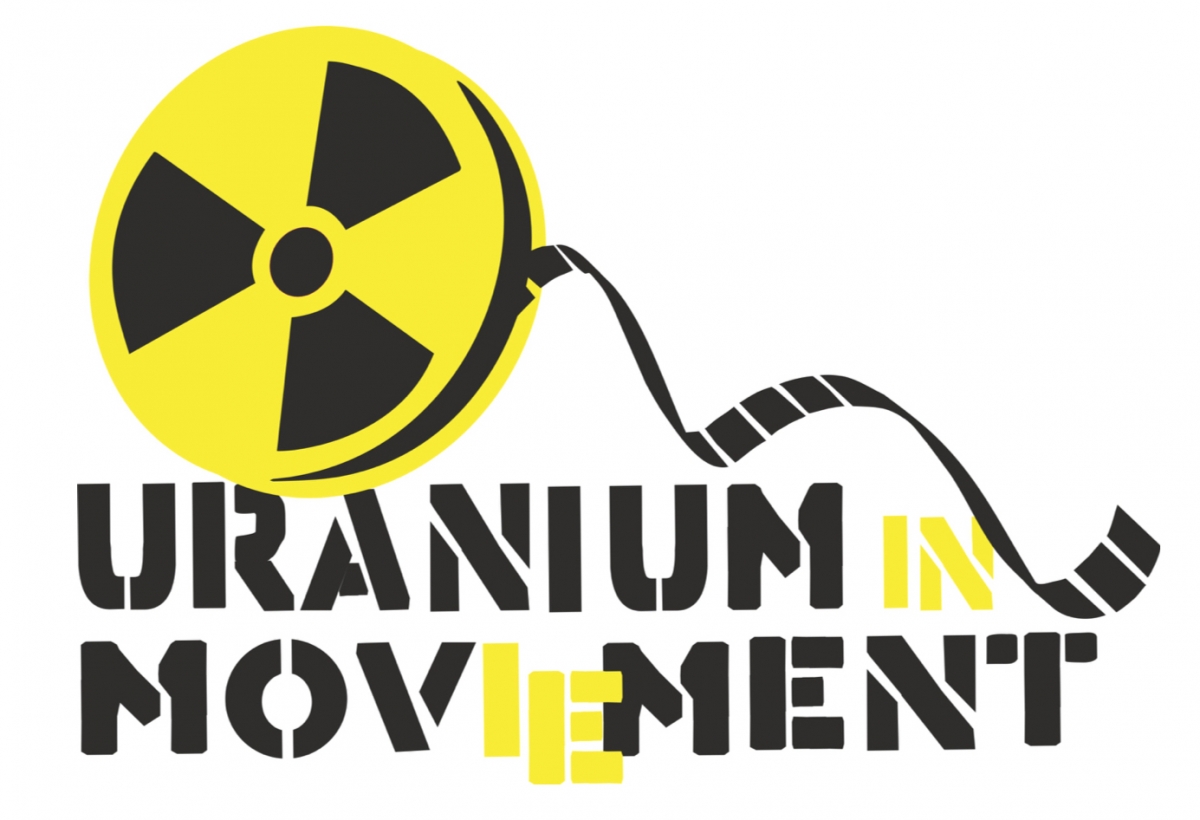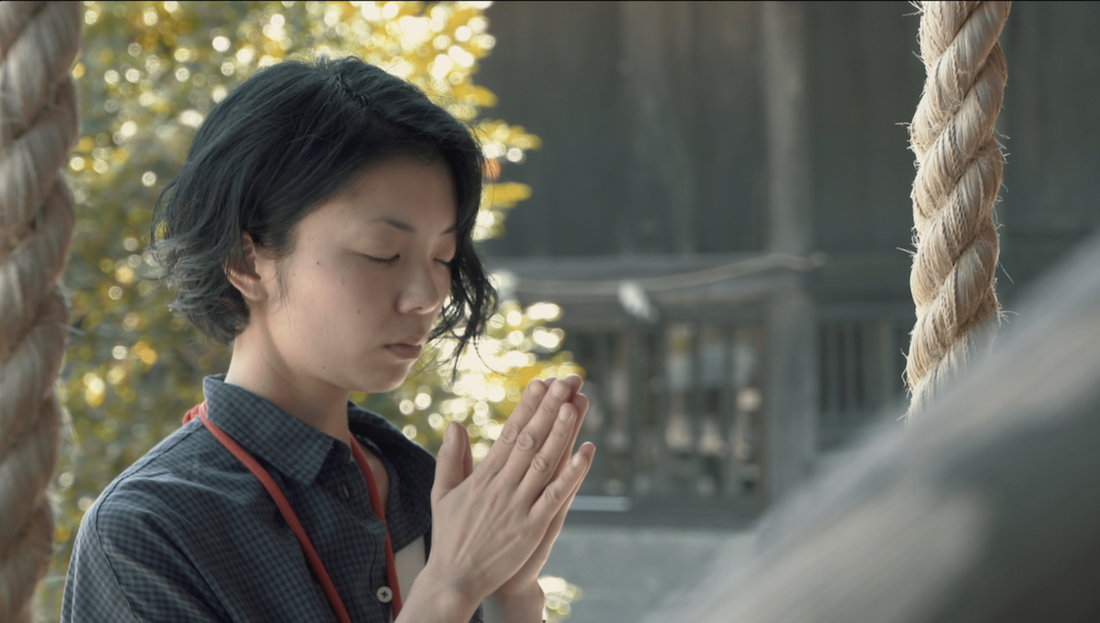Le Festival du film Uranium Rio a récompensé Keïko Courdy , réalisatrice et artiste multimédia française. "Je suis heureuse et fière que "l'île invisible" ait été choisi comme meilleur documentaire avec "les mères atomiques "d'Ayumi Nakagawa."
Le Festival international du film Uranium de Rio de Janeiro 2021 pour la première fois en ligne et libre pour tous - a pris fin avec un public fantastique de près de 7 000 visionnements.
The 10th Rio die Janeiro International Uranium Film Festival, which took place online this year due to the coronavirus pandemic, has announced the winners of its awards. U.S best-selling author Greg Mitchell received the Best Archival Documentary Award for his film „Atomic Cover-Up“. Two women filmmakers share the festival’s Best Feature Documentary Award: Ayumi Nakagawa from Japan for „Atomic Refugee Moms“ and French filmmaker Keiko Courdy for her new Fukushima documentary „The Invisible Island“.
In addition, the International Uranium Film Festival, has awarded two in the world of nuclear disarmament well known personalities with the festival’s Honorary Lifetime Achievement Award: Sérgio de Queiroz Duarte, former Brazilian diplomat who served as Ambassador in several countries and has dedicated his life to end the nuclear threat. And New York City filmmaker Robert E. Frye who created "The Nuclear World Project“ and directed two important documentaries on Nuclear Disarmament: „The Nuclear Requiem“ and „In My Lifetime“.
On ten days between May 20 and 30, the international audience was able to see 34 films from 15 countries on nuclear weapons and nuclear energy: from Hiroshima to Fukushima. The worldwide unique film festival, which was supported by the Modern Art Museum (MAM Rio) in Rio de Janeiro, attracted viewers from 74 countries on all continents. Almost 7000 viewings were counted. Greg Mitchell’s Atomic Cover-Up was the most watched film of the festival with 1377 viewings, followed by the film session of Adam Jonas Horowitz with over 610 viewings.
Download full press realease here!
The best and awarded films of the International Uranium Film Festival Rio de Janeiro 2021 are:
BEST ARCHIVAL DOCUMENTARY AWARD
ATOMIC COVER-UP by Greg Mitchell, USA, 2021, Documentary, 52 min. - The widely-acclaimed 2021 film Atomic Cover-up is the first documentary to explore the bombings of Hiroshima and Nagasaki in 1945 from the unique perspective, words and startling images of the brave cameramen and directors who risked their lives filming in the irradiated aftermath. It reveals how this historic footage, created by a Japanese newsreel crew and then an elite U.S. Army team (who shot the only color reels), was seized, classified top secret, and then buried by American officials for decades to hide the full human costs of the bombings as a dangerous nuclear arms race raged. All the while, the producers of the footage made heroic efforts to find and expose their shocking film, to reveal truths of the atomic bombings that might halt nuclear proliferation. Atomic Cover-up represents, at least in part, the film they were not allowed to make, as well as a tribute to documentarians everywhere.
TRAILER and
ABOUT THE FILM
ATOMIC REFUGEE MOMS by Ayumi Nakagawa, Japan, 2018, Documentary, 65 min. - There are many evacuees who had been driven into the poverty after the Japanese government cut off the housing subsidies for those who fled their house after the nuclear disaster in Fukushima in March 2011. Kazuko, who fled her house to Tokyo with her two primary school daughters, has to work over the weekend to pay the expensive rent in Tokyo. She is irregularly employed, which means that if she gets sick, it would affect her income. There are still 70,000 evacuees from contaminated area and this is the documentary to address once again, what is the actual revitalization.
TRAILER
THE INVISIBLE ISLAND (L'ILE INVISIBLE / 見えない島) by Keiko Courdy. France, 2021, Documentary, 87 min. - Waves crash eternally on the shore of Fukushima Daiichi Nuclear Power Plant. Next to a white facility for radioactive waste burning, black bags of contaminated soil pile up while a family looks for traces of their house. The film relates the stories of people who survived the tsunami and were forced to leave their home, people who came back in the darkest times, and people who came to work from far away, decontamination workers of Fukushima Daiichi. In the zone, invisible traumas are everywhere. There is no life without risk but what risk are we ready to take? In Japan, everyone wishes to forget and go forward, but the traces can not be erased that easily. (Top photo: Still of THE INVISIBLE ISLAND)
TRAILER
HONORABLE MENTIONS
ATOMIC GODS - CREATION MYTHS OF THE BOMB by
Adam Jonas Horowitz, USA, 2021, Mockumentary, 36 min. - ATOMIC GODS is a series of surrealistic, black-comedy short films that reveal for the first time the secret, unknown, (and perhaps even forbidden), 'Creation Myths of the Bomb.’ It is actually a „Mockumentary" about J. Robert Oppenheimer and the birth of the Atomic Bomb. A biting satire that is at once both historic and futuristic, this dark episodic series serves as a post-nuclear fairy tale. Produced, Written, and Directed by Adam Jonas Horowitz, "ATOMIC GODS" is partially funded by a grant from the Fulcrum Fund grant program of 516 Arts, made possible by the Andy Warhol Foundation for the Visual Arts.
BOBBY BROWN HOMELANDS - LIVING WITH THE LEGACY OF BRITISH NUCLEAR TESTING by Kim Mavromatis and Quenten Agius, Australia, 2015, Documentary, 5 min. - In the 1950’s and 1960’s the Australian government authorised British Nuclear testing at Emu Field and Maralinga in Outback South Australia. We journey with Antikirrinya Elder, Ingkama Bobby Brown to his homelands in outback South Australia where he explains the legacy of living with British Nuclear testing - how he witnessed the first tests on the Australian mainland at Emu Field (1953) and experienced the devastating affects of radioactive fallout on his family, people and country. This is the first time Bobby has spoken out about what he witnessed when he was a boy - what happened to his family and country and the people who went missing - during British Nuclear testing. British Nuclear testing was a breach of the King's Letters Patent, the founding document that established the state of South Australia (1836), which granted Aboriginal people the legal right to occupy and enjoy their land for always. How could they occupy and enjoy their land when their land was being blown up and irradiated by nuclear fallout.
ABOUT THE FILM
SMALL OBJECT A (PEQUENO OBJETO A) by Daniel Abib, Brazil, 2014, Fiction, 16 min - Somewhere in the past an atomic bomb went off and the world was reduced to ashes. Shiro Ishio is a scientist who helped in the development of the bomb and is now trying to grasp the consequences of his act. He tries to understand its consequences: an anomaly and a mysterious girl. Confined to his routine in his laboratory, Ishio watches her through a monitor. A narrator reports on Shiro Ishio's diary that was found some 200 km from Okinawa, where a nuclear bomb would have exploded, leaving only the girl and a „anomaly“ alive. The film deals with the dilemma of the scientist of the ambition of science. What is predictable and what is unpredictable. A reflection on the question "Is there any relationship between science and virtue?“
THE SEAL OF THE SUN (TAIYO NO FUTA) by
Futoshi Sato, Japan, 2016, Drama, 90 min - March 11, 2011. The earthquake hits and Japan is thrown into a panic. The cooling system at the Fukushima Daiichi Power Station goes down and the temperature rises. The countdown to an even more enormous catastrophe has started. Futoshi Sato: „Born in the area that was devastated by the 2011 earthquake, I wanted to talk about it, but I was wondering what might be the approach to make it a movie. For his part, Mr. Tamiyoshi Tachibana wondered about the possibility of adapting the book written by Tetsuro Fukuyama, Deputy Director of the Cabinet of Naoto Kan. This book `The Nuclear Crisis – A Testimony from the Residence of the Prime Minister´ is a fundamental work that tells the truth of the events that occurred on those days at the Residence. If this project was able to start and be realized, it is thanks to the total and complete implication of Tamiyoshi Tachibana."
TRAILER
FESTIVAL JURY
ALPHONSE KELECOM - Alphonse Kelecom, Professor for the Radiobiology and Radiometry at the Laboratory of the Institute of Biology, Fluminense Federal University (UFF)
MAKIKO HAMAGUCHI-KLENNER - Makiko Hamaguchi-Klenner, Prof. for East Asian Politics and Curator of the „little“ Uranium Film Festival in Düsseldorf, September 11th, 2021.
ANA MARIA FERREIRA DA SILVA - Ana Maria Ferreira da Silva, Psychoanalyst and Coordinator of the Cinema and Psychoanalysis project at Fábrica Bhering
MÁRCIA GOMES DE OLIVEIRA - Uranium Film Festival director & NORBERT G. SUCHANEK - Uranium Film Festival director
DONATE with PayPal
We thank Kathy Altman from PSR Arizona and Lucy Jane Santos, author of the book Half Lives:The Unlikely History of Radium) and Jim Torson from Flagstaff for their support and donations. The festival team also thanks its supporters in Rio de Janeiro: The Museum of Modern Art Cinematheque (MAM Rio) and Cachaça Magnífica de Faria.
Contact
International Uranium Film Festival
Rua Monte Alegre 356 / 301







